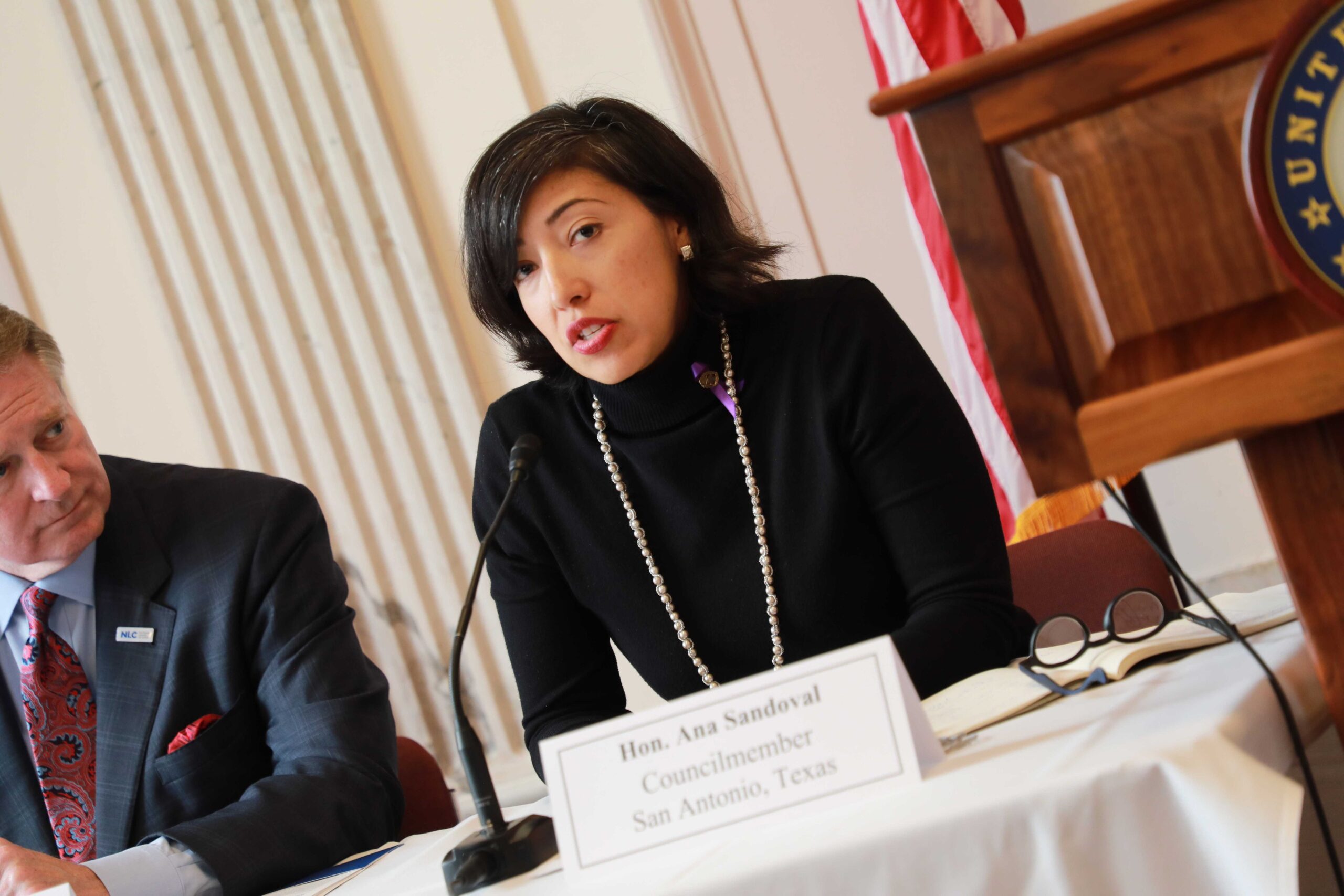WASHINGTON—Today the National League of Cities, Arnold Ventures and the Addiction Treatment and Recovery Caucus hosted a briefing on Capitol Hill showcasing innovative local on-the-ground strategies to address mental health, substance use, and homelessness. The convening urged the federal government to play an active role in ensuring cities have direct and flexible funding for emergency response and crisis stabilization.
“With the addiction problems that we are having—not just opioids, but all addictions—cities are on the front lines,” said Senator Joe Manchin (D-WV). “You’ve got to speak up to your senators, to your congresspeople, your representatives and let them know what’s important. We have the best intentions to give you the tools. You know best. Make sure you tell us what’s not working.”
Every day cities, towns, and villages across the country face challenges posed by mental illness, substance use disorder and homelessness. An effective response by municipal leaders requires a comprehensive, multi-sector approach.
“The National League of Cities is going to step up and city leaders expect us to address these issues because they affect the lives of people every day,” said National League of Cities CEO and Executive Director Clarence Anthony. “We need a federal partner that can understand what is going on in the streets of the communities in the cities, towns, and villages throughout America. We look forward to continuing to work with Congress and our partners here today.”
A partnership with Arnold Ventures gave the National League of Cities an opportunity to explore these issues together. Arnold Ventures has a longstanding commitment to improving outcomes for individuals that are dealing with mental health issues, substance use disorders, and homelessness.
“We are here today to ask members of Congress for their help to ensure cities have more direct and flexible funding, including the ability to blend and braid funding so that available resources can better address the need on the ground,” said Arnold Ventures Criminal Justice Manager Nicola Smith-Kea.
Many local leaders are introducing innovative emergency response and crisis stabilization strategies. National League of Cities President and Mayor of Gary, Indiana Karen Freeman-Wilson moderated the opening panel featuring local elected officials from Huntington, West Virginia; Wichita, Kansas; and San Antonio.
“Five years ago, when I got involved, we really had no infrastructure in place. The biggest problem we had is that we had always thought it was a law enforcement problem,” said Mayor of Huntington Steve Williams. “We didn’t even know what we didn’t know. We didn’t even know what was present. We didn’t know how many overdoses we had in the last month. In developing that real-time data, we were able then to immediately put a plan in place.”
“Arresting people is not the solution. Our jails are filling up with people who have mental health issues and substance abuse issues,” said Mayor of Wichita Jeff Longwell. “At any given time we’ve had about 1,500 people in our local jail facility. About 75% of those individuals have substance abuse issues and between 30 to 35% have mental health issues. Arresting them is not fixing the issue.”
“Up until about a year ago, those individuals were taken to emergency rooms and that’s not always the best place for stabilization of someone with a mental health crisis. There are doctors are who are ready to perform surgery on them, but there’s not a psychiatrist there to help them,” said San Antonio Councilmember Ana Sandoval. “Instead of taking these individuals to an emergency room where all they would do is sit, they are taken to a mental health facility—there are fourteen in the region—where they will receive some sort of stabilization help.”
The briefing concluded with Chris Jones, senior advisor and director of Strategy and Innovation at the National Center for Injury Prevention and Control at the U.S. Centers for Disease Control and Prevention, moderating the closing panel.
Representatives from the National Alliance on Mental Illness, National Organization of Black Law Enforcement Executives, and the United States Interagency Council on Homelessness provided recommendations to better coordinate government and stakeholder efforts.
“If you want equity, you have to address all addictions. We need for members in law enforcement to understand that there are injustices that have caused things to be the way that they are now and everybody deserves to have the same services,” said Chief Mitchell Davis, III of the National Organization of Black Law Enforcement Executives. “As officers, we are on the front line and we can’t arrest our way out of this. We need to provide services and systems for everyone—whether they have an insurance card or not.”
For resources to help local leaders implement effective strategies for emergency response and crisis stabilization for individuals experiencing mental illness, substance use disorder and/or homelessness, download a series of issue briefs here.
###
The National League of Cities (NLC) is the voice of America’s cities, towns and villages, representing more than 200 million people across the country. NLC works to strengthen local leadership, influence federal policy and drive innovative solutions. Stay connected with NLC on Facebook, Twitter, LinkedIn and Instagram.
